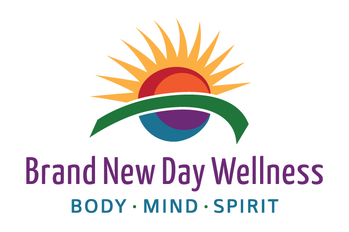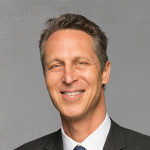|
Written by
MARK HYMAN, MD Today’s house call focuses on a topic very personal to me. “Mark, what would you do if you were diagnosed with cancer?” a friend recently asked. I’ve had a lot of time to think about this. I’ve sadly seen a lot of cancer in my life, both with my own family and with patients. The problem is that conventional medicine protocols have a lot wrong when it comes to cancer. We are good at cutting it, burning it, and poisoning it with surgery, radiation, and drugs, but many doctors fail to treat the cause of the cancer. You see, conventional medicine focuses on naming diseases based on geography, body location, and specialty, instead of by the cause, mechanism, or pathway involved. Doctors say you have liver, kidney, brain, or heart disease, but this approach to naming disease tells you nothing about the cause. Instead of asking what disease you have and what drug should be used to treat it, we must ask WHY the disease has occurred. What are the underlying causes that lead to illness? Modern medicine approaches illness like a mechanic trying to diagnose what’s wrong with your car by listening to the noises it makes and never looking inside to see what’s going on. Functional Medicine allows us to look under the hood. It gives us a method for identifying the conditions in which disease thrives and shows us how to begin changing those conditions.
A Functional Medicine Approach to Cancer
Functional medicine empowers patients and practitioners to achieve the highest expression of health by working collaboratively to address the root causes of disease. It is an emerging, personalized model of diagnosis and treatment that better addresses the need to prevent and manage chronic disease. In a word, it is the medicine of WHY, not WHAT. Functional Medicine doctors are like soil farmers. They create a healthy soil, so pests can’t come and weeds can’t flourish. A healthy soil means disease can’t take hold. So with cancer, a Functional Medicine practitioner would say that yes, we still need radiation and other conventional approaches, but what else can we do? How can we properly cultivate a healthy soil? Cancer results because of in an imbalance in the system. So many people are walking around with tumors and don’t know it. We can do something to prevent them from growing by maintaining a healthy soil. Instead of dividing everything into diseases and labels, emerging science points to a different way of thinking about diseases. Rather than divide the body into organs, Functional Medicine approaches disease as a systemic problem, and we have to treat the system, not the symptom; the cause, not the disease. This completely redefines the whole notion of disease. The landscape of illness is changing. How we label cancer is no longer synced up with what we know about the origins of cancer or the fact that two people who have cancer with the same name—like breast cancer—can have two completely different diseases which require different treatments. Just because you know the name of your disease doesn’t mean you know what’s wrong with you or what to do about it. Classifying tumors by body site — lung, liver, brain, breast, colon, etc. — misses the underlying causes, mechanisms, and pathways involved in a particular cancer. What’s more, it gives us no information about how it manifested in a given patient. Two people with cancers in different parts of the body may have developed it for the same reasons. Similarly, two people with cancers in the same part of the body may have developed it for different reasons. A patient with prostate cancer and one with colon cancer may have more in common with each other than two patients who have colon cancer. We need to look under the hood and find out what caused the illness to begin with. Cultivating a Healthy Soil Numerous things can contribute to cancer. Studies show diet, exercise, thoughts, feelings, and environmental toxins all influence the initiation, growth, and progression of cancer. If a nutrient-poor diet full of sugar, lack of exercise, chronic stress, persistent pollutants, and heavy metals can cause cancer, could it be that a nutrient-dense, plant-based diet, physical activity, changing thoughts and reactions to stress, and detoxification might treat the garden in which cancer grows? In other words, treat the soil, not the plant. It is a foundational principle of sustainable agriculture, and of sustainable health. We can enhance immune function and surveillance through dietary and lifestyle changes, as well as nutrient and phytonutrient therapies. We can facilitate our body’s own detoxification system to promote the elimination of carcinogenic compounds. We can improve hormone metabolism and reduce the carcinogenic effects of too much insulin (more on that in a minute) from our high sugar and refined carbohydrate diet. We can also alter how our genes are expressed by changing the inputs that control that expression: Diet, nutrients, phytonutrients, toxins, stress, and other sources of inflammation. And we can focus on less divisive and more generative thoughts that, in turn, create more uplifting emotions — all good fertilizer for the soil in the garden of our body. 5 Strategies to Reduce Cancer Formation and Growth Cancer results from an imbalance in our system where the immune system can’t fight off tumors. We can do many things to prevent that cancer from getting to its full stage, and if you have cancer, you can make your body inhospitable to that cancer.
Change your thoughts to change your immune system. This bonus strategy is often overlooked, but it’s just as important as the other strategies above. Science is now proving what we all knew intuitively — that how we live, the quality of our relationships, the food we eat, and how we use our bodies determines much more than our genes ever will. There are numerous strategies to combat or prevent cancer, including getting sufficient sleep, controlling stress levels, and exercising regularly. The important thing is to figure out what works for you and develop a plan to stick with it. That might involve working with a Functional Medicine doctor or a chronic disease specialist. Conclusion Whether you have been diagnosed with cancer or have become concerned about family and friends being diagnosed, the most important thing is mindset and not playing into fear. While we all hope there will one day be a miracle cure for cancer, there are things that we know now will combat cancer or keep our quality of life high while our body is fighting the cancer. The science of cancer genetics is changing. Two people who have the same cancer could be completely different in terms of how the cancer performs. That’s why I’m very excited about the work that Dr. Patrick Soon-Shiong is doing in California on the cancer genome and creating targeted therapies to treat the cancer in every patient individually. This and other emerging technologies, combined with the Functional Medicine approach to cancer, give me great hope about our ability to further prevent and treat this disease in the future. Cancer is scary, but there is almost always something you can do to improve your condition. I encourage you to think about cancer differently and more importantly, not lose hope. Most people reading this will have experienced cancer, either personally or with family and friends. Did you find a particular mindset helped you cope with the news? Did a particular dietary or lifestyle strategy help you in this situation? Share your story below or on my Facebook page. Wishing you health and happiness, Mark Hyman, MD.
0 Comments
Your comment will be posted after it is approved.
Leave a Reply. |
Categories
All
�
Archives
November 2022
|


 RSS Feed
RSS Feed